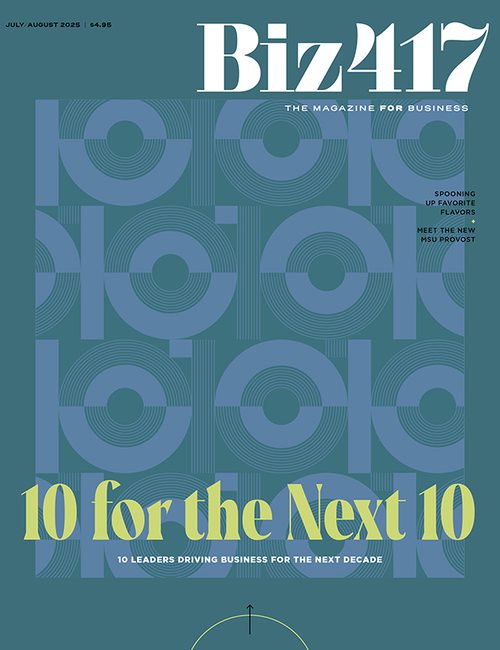
Strategy
Being a Better Company is Hard
Spencer Harris, Director of Operations at Mostly Serious explains why it's so important that companies and their employees strive for growth.
By guest blogger Spencer Harris, Ph.D.
Jan 02 2018 at 3:22 p.m.

Most of the content that Mostly Serious has contributed to this blog over the last year has been about the technical issues on which we are experts: content marketing trends, tips for effective SEO, and the value of research in the website development process. And, as an entity, that’s a nice survey of the types of things we do.
But, the thing about Mostly Serious, and most businesses, is that we’re not just an entity. We’re also a collection of humans making decisions, grappling with challenges big and small, and trying our damndest to succeed. And that’s the part I want to discuss here, the part about what it means to try, and sometimes to fail, and then improve and try even harder. Because that’s what we really do at Mostly Serious: we grow.
2017 was a year of growth. 2017 was the hardest year in the company’s history. 2017 was the most successful year in the company’s history. And here’s my best assessment of how all of those things became true.
The Incredible Shrinking Team That Grew
When we started 2017, we had 10 full-time employees (down from 12 in late-2016) and hosted two interns in the first half of the year. Five of us were new in our roles, three of those roles were new to the company, and two of us had recently come over from other companies. The beginning of 2017, then, was equal parts learning and rearranging. New employees and tenured employees were learning their new responsibilities, and everyone was rearranged into more structured departments to supplement those new roles. We even rearranged the desks.
The decision to shuffle was a principled one: things were not working as expected and we decided that a change in structure was a good solution. And, in some ways, it was. Introducing some hierarchy in a traditionally “flat” organization provided critical clarity in decision-making and accountability. In other ways, though, structure couldn’t solve some of the issues obstructing the company’s success. In fact, it might have enhanced a few of them. Because, as we soon discovered, structure without direction is a chassis without a steering wheel.
So we had some tough conversations about who we wanted to be and where wanted to go. A lot of tough conversations, in fact, and then we set a firm direction. Our newly rearranged team would be going this way, not that way. But this way would require a lot of collaboration, accountability, and grit (three of our core values that adorn the walls of nearly every room in the office). It would also require the company to jettison a crucial part of its identity. And then, as we suspected might happen, people started leaving. I suppose that the natural response to “people started leaving” is to cringe. Culturally, we tend to believe that when people leave a company, it’s because the company did something wrong. But don’t cringe, because that’s not the case here.
The first person to leave in 2017 indicated that he clearly understood the company’s direction, agreed that our new methods were appropriate to accomplish our goals, and simply had no interest in doing that. The next person to leave agreed the direction was right for the company, but didn’t see a place in that future state. The next two had similar sentiments.
Just like that, we’d lost nearly half the team. So we had tough conversations about our needs, our processes, our direction (and our commitment to that direction), and what we were all willing to sacrifice to make this work. We only replaced one of the four employees we lost. And then we had the company’s best year ever.
The people that chose to stay were committed to the direction. Our new hire knew where we were going (because we’d taken time to define that) and was passionate about helping the team get there. Our organizational clarity also created clarity in messaging and purpose, boosting our third quarter sales into the stratosphere. And, in the fourth quarter of 2017, with the smallest team that Mostly Serious has had in more than three years, we pushed more work out the door than we did in nearly all of the other quarters combined.
What Did We Learn?
2017 was about growth at Mostly Serious. Sure, we made websites. Stunning ones, in fact. And we produced the best content we’ve ever produced. But, looking back, what we really did was grow. The company offered more services to provide value to our clients. People took on more responsibilities, expanding their expertise to accomplish our clients goals. And members of the team pushed themselves (and their peers) harder to achieve more.
So, what did we learn? We learned that the old “right people, right seats” Collins-ism isn’t just an -ism. It’s a requirement. We learned that passion and technical expertise are great, but they need a direction to truly flourish. And we learned that it is hard work, really superbly hard work, to be the company you want to be, especially when that means parting ways with valued team members.
That’s what this whole thing is about, though, right? It’s the reason people read blogs on Biz 417 and books by Jim Collins. It’s the reason people attend seminars on organizational growth and culture. And it’s the reason that successful companies are successful. Because they, and their employees, strive to grow.
Here’s to growing even more in 2018.
Spencer Harris (PhD) is the Director of Operations at Mostly Serious, an agency that specializes in strategy, digital products, and online marketing. You can learn more about Mostly Serious on Twitter, Facebook, Instagram, or by visiting MostlySerious.io.












